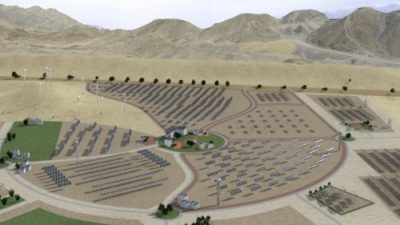 Forest in central Israel, as seen from Ein Karem
Forest in central Israel, as seen from Ein Karem
Some architects and economists are proposing Israel solve its affordable housing crisis by turning central Israel into a “megacity,” similar to Hong Kong, and moving the nation’s lush nature reserves and agricultural lands to the Negev and the Galilee. Supporters of this solution insist it would not harm the environment if public transportation was improved and public parks increased.
According to the Israeli Ministry of Foreign Affairs, the country produces around 93% of their domestic food requirements. As of 2002 central Israel held 39% of the country’s agricultural land. As we’ve seen in numerous nearby Arab nations, food security continues to be a divisive issue among Middle Eastern populations. It’s hard to imagine that paving so much of Israel’s fertile land would be beneficial in the long run.
Turning Israel into predominately urban/suburban landscape directly contradicts the Zionist ideals it was founded upon, an ideology that galvanizes agricultural work and spacious, dispersed population centers. Indeed it would contradict one of the founding characteristics of Israeli culture.
In Israel a group of teenagers is just as likely to go hiking or camping as they are to go see a movie. On multiple occasions I have stumbled upon groups of Israelis feverishly discussing the beauty of a fresh, ripe, locally grown tomato. The visceral connection Israelis have to their homeland and the food it produces is among the most admirable qualities of the national culture. Delineating agricultural land to the country’s northern and southern fringes would undoubtedly impact that mindset.
 The Negev desert in southern Israel
The Negev desert in southern Israel
We can only hope that the Israeli public will have a say in how the nation resolves its housing crisis. Prime Minister Netanyahu’s urban and environmental planning reform recently received its second pejorative ‘Black Globe Award,’ the first of which was awarded in 2010. Israeli judges criticized the reform in an article by Haaretz newspaper, saying:
“It allows those with power and money to impact the lives of each and every one of us by diminishing the Environmental Protection Ministry’s authority and creating the basis by which the environment in general, and open spaces in particular, can be infringed upon.”
With such a strong, majority coalition in the Israeli parliament, the Knesset, if Netanyahu decided he wanted central Israel turned into a mega-city there would be none of the usual checks and balances to challenge him.
But there is already a bristling awareness among Israelis that their country is running out of virgin land to develop. Since wilderness and agriculture are both so central to the national character, the optimist in us feels confident that mega-city proposals will be scoffed at and ignored.
Images by Leigh Cuen



Obviously, Israel needs a stable population to live within the land’s ability to support it; and the same for every other nation on Earth. Only macho politics wants a growing population for aggressive nationalism.